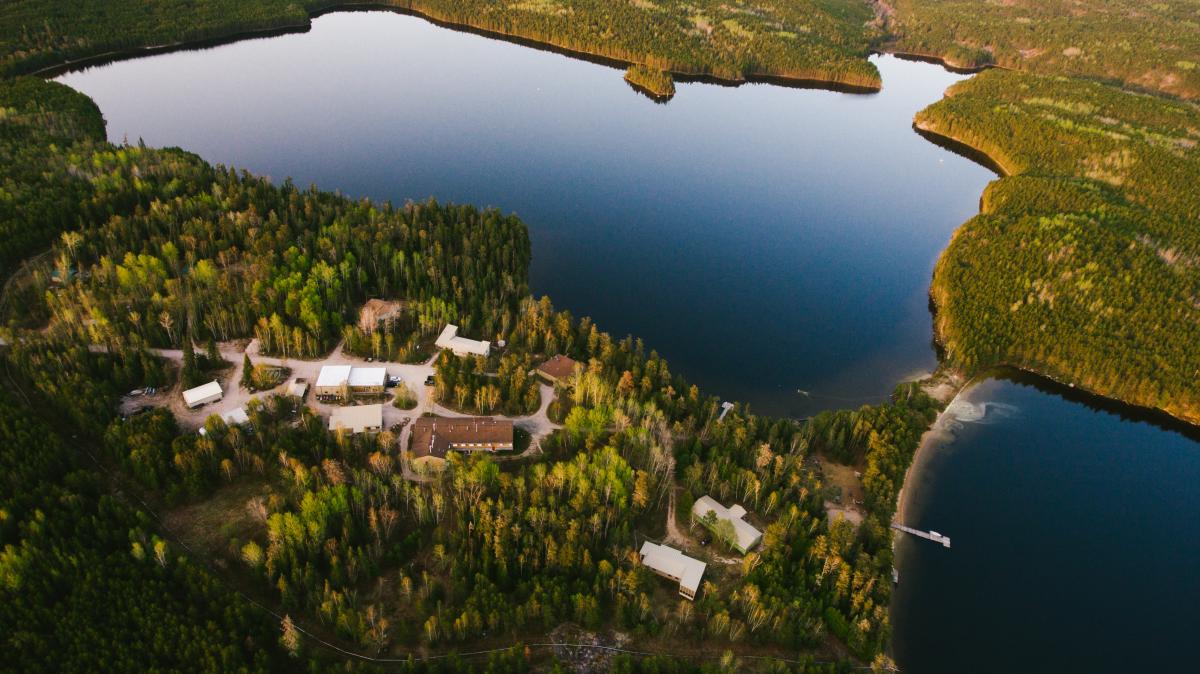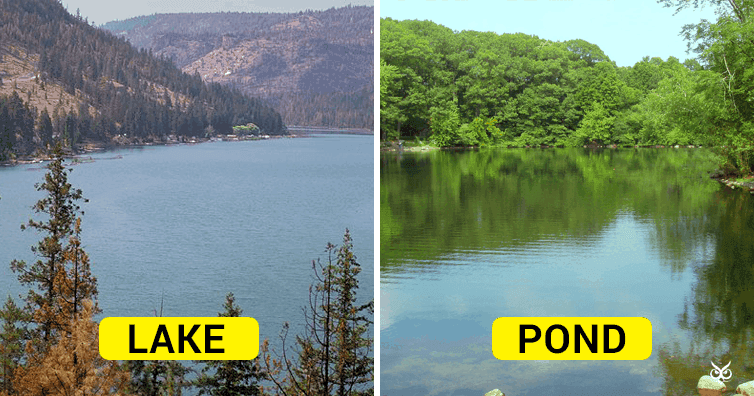Lake and pond are such two familiar terms for all of us. We might see them every day, but wait! Are you sure that the lake near your house is actually a ‘lake‘? Maybe it’s a ‘pond‘? You might say, ‘It’s large, so it’s a lake‘. But, you will confuse to know that there are many ponds which are much larger. So, how to tell the differences between Lake and Pond?
What is “LAKE”?

Lake /leɪk/ is an area filled with water, localized in a basin, not connected to the sea except by rivers or streams.
A lake can be natural or artificial. Artificial lake is constructed for industrial or agricultural use, for hydro-electric power generation or domestic water supply, or for aesthetic, recreational purposes, etc.
Ex:
- I love going boating on the lake near my house.
- They constructed that lake for hydro-electric power generation.
Let’s have a look at this beautiful Sandoval Lake in Peru:
What is “POND”?

Pond /pɑːnd/ is an area of water surrounded by land, either natural or artificial, usually smaller than a lake.
A pond is usually human-constructed for habitat restoration, decoration, commercial breeding (of fish, shrimp, etc.), or architectural features, etc.
Ex:
- My grandpa dug a small pond for fish breeding.
- I remember going fishing on that pond with my dad when I was a child.
I have a visual example of a pond for you in this video – a duck pond:
Differences between LAKE and POND
Surprisingly, there are no scientific differences between lake and pond. The reason for this is that the terms lake and pond are arbitrary and not based on any naming convention.
An area filled with water might be called a lake or a pond by earlier settlers in the region. This explains why there are ponds that are larger than lakes. For instance, Echo ‘Lake‘ in Conway is 14 acres in size of the surface and 11 feet in maximum depth, while Island ‘Pond‘ in Derry is 500 acres in size and 80 feet in depth.
Sometimes, people might change the name of a pond to a lake without any changes in its size or depth just to attract tourists to the area. There are many cases like this: Mud ‘Pond‘ to Mirror ‘Lake‘ in Canaan, Mosquito ‘Pond‘ to Crystal ‘Lake‘ in Manchester, and Dishwater ‘Pond‘ to Mirror ‘Lake‘ in Tuftonboro.
All of these facts show that there are no specific criteria to precisely tell whether an area of water is a lake or a pond. However, let’s make it easy by following the most widely accepted standards to differentiate these two terms – size and depth distinctions.
- Size distinction: a lake is usually larger than a pond.
- Depth distinction: a lake is much deeper than a pond. (this criterion is more universal than size distinction)
- A pond is shallow enough for the sun rays to reach the bottom.
- A lake has an area which is deep enough that the sun rays can’t reach the bottom.

Pop quiz
Let’s take these short quizzes to understand the differences between lake and pond better.
Fill in the blank, using one of these two words: lake, pond:
- A _____ is deeper than a _____.
- People usually consider a____ to be smaller than a ____.
- Sun rays can reach the bottom of a _____.
- The old farmer digs a _____ in his backyard for the ducks.
- They constructed that____ for hydro-electric power generation.
Key:
- lake – pond
- pond – lake
- pond
- pond
- lake
Hope that the information in this article is useful for you. If you want to find out other confusing words in English, download free eJOY ebook now:















